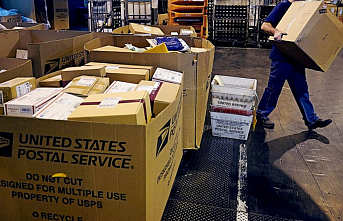BERLIN -- Germany will close half of its six remaining nuclear plants on Friday, one year before it draws the curtain on its decades-long reliance on atomic power.
Gerhard Schroeder, a center-left government, made the decision to eliminate nuclear power and switch from fossil fuels towards renewable energy in 2002.
Angela Merkel, his successor, reversed her decision in 2011 to extend the life of Germany's nuclear power plants and instead set 2022 as the deadline for their closure.
These three reactors, now being shut down, were originally powered up in mid-1980s. They provided electricity for nearly four decades to millions of German homes.
Brokdorf, a plant located 40 km (25 miles) north of Hamburg on Elbe River, became the focal point of anti-nuclear demonstrations that were fueled in part by the 1986 Chernobyl disaster in the Soviet Union.
Grohnde is located about 40 km south of Hannover and Grundremmingen is 80 kilometers west from Munich.
Germany has many people calling for the end of nuclear power because power plants that are still in operation emit very little carbon dioxide. Atomic energy supporters argue that it will help Germany reach its climate goals for reducing greenhouse gas emissions.
The German government stated this week that it will not affect energy security nor its goal to make Europe's largest economy "climate neutral" by 2030.
Robert Habeck, Economy and Climate Minister, stated that Germany can demonstrate this by increasing the amount of renewable energy and expanding the electricity grid.
While several of Germany's neighbours have either stopped using nuclear power or made plans to do so in the future, others remain committed to the technology. There are concerns about a European nuclear rift as France plans to build new reactors while Germany chooses natural gas as a "bridge", until sufficient renewable power is available. Both sides argue that their preferred energy source should be considered sustainable.
The remaining three German nuclear plants, Emsland and Isar, will be shut down by 2022.
RWE, a utility company, said that while some jobs may be lost in the shutdown, more than two-thirds (or 600) of its Gundremmingen nuclear plant workers will still be working in the post-shutdown operations until the 2030s. Germany's nuclear power plants will be receiving almost $3 billion to help them shut down their plants early.
Steffi Lemke, Environment Minister, dismissed the suggestion that Germany might change its course with a new generation nuclear power plant.
Funke's media group was informed this week that nuclear power plants are still high-risk facilities and produce radioactive atomic waste.
The final decision about where to store the tens of thousands upon tens of thousand of tons of radioactive waste from German power plants is yet to be made. Some material may remain radioactive for up to 35,000 years, according to experts.












